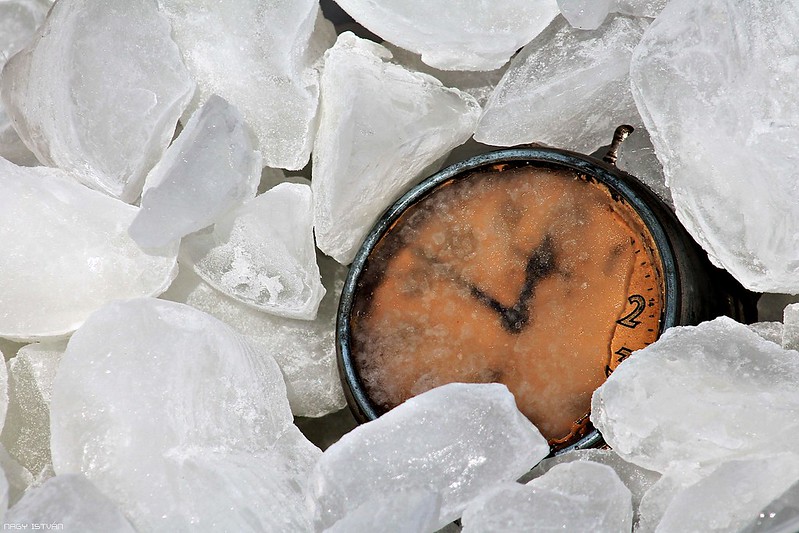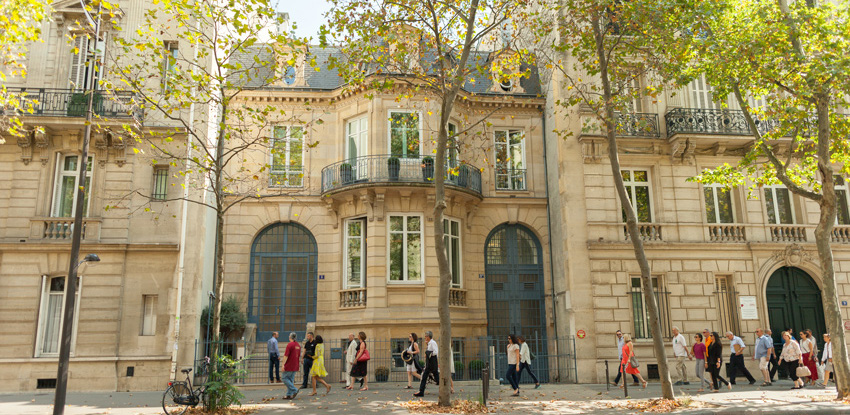We're Getting There

As climate concerns continue to grow, the responsibility falls on individuals and institutions alike to effect sustainable change. The American University of Paris is no exception. With the new decade coming in hot, it is time to rethink some things and change them for the better.
Near the beginning of the semester, AUP's first Sustainability Board was instituted within the Environmental & Community Service Committee of Student Government. The board is made up of student senators, passionate independent students, and leaders of sustainability-rooted student organizations including AUP Green, the Sustainable Fashion Club and the Vegan Club.
On the evening of November 5, AUP hosted a Climate Cocktail event, where sustainability at AUP was the central focus. In the 8th floor of the Quai building, a panel of four AUP students discussed their time at the first annual Oslo Pax: a gathering organized by the Noble Peace Center that offers a space for collaboration between young leaders in sustainability, so that they may ultimately make recommendations to the UN climate summit. The Climate Cocktail also consisted of an open dialogue between students and administration about sustainability. There were three proposals by students on how to make our campus more sustainable. University President Celeste Schenck even expressed interest in hosting a climate conference along the lines of the Oslo Pax right here at AUP.
The clock is ticking. Image credit: Flickr/Nagy IstvánJust a few weeks ago, the Student Senate passed the AUP Sustainability Commitment, an initiative written by the Sustainability Board. The resolution commonly referred to as the "AUP Green New Deal" was predicated by extensive research the Sustainability Board carried out since its dawn. The resolution covers climate science, AUP's operations statistics, former sustainability initiatives at AUP, and projects that AUP could realistically implement. This resolution contains 22 projects that will make AUP's campus greener. It is an embodiment of the fierce commitment on behalf of AUP's student body to make sure our institution addresses environmental issues.
The heart of the resolution is such: "Resolved, that it is the sense of the Student Senate, on behalf of the Undergraduate and Graduate Student Bodies of the American University of Paris, that—[. . .] it is the joint duty of university administration, the Student Government Association, and the AUP community at large—[. . .] to achieve net-zero greenhouse gas emissions from university buildings; [and] to achieve net-zero waste production from university buildings."
Christopher Turner is the Sophomore Representative and also has a seat on the Sustainability Board. He is the co-author of the AUP Sustainability Commitment and notes that "even if we have a recycling bin, composting bin, water fountain, etc., on every floor of every building on campus, they're useless unless AUP students, professors, and staff actually use them, and make a commitment to shift towards more sustainable behavioral patterns." The biggest barrier we face to becoming a fully sustainable institution is our collective behavior.
A crowd around AUP's La Tour-Maubourg building. Image credit: AUP websitePart of this commitment means that the student body and administration are working side by side, maximizing our resources to create the most effective and sustainable solutions. Before this can really happen, these bodies need to get on the same page. Turner notes that "In the past, there really seems to have been a disconnect between students and administration in regards to campus sustainability."
The desired effect of the AUP Green New Deal is to create a big shift in the way university administration views the students' commitment to radical and innovative change towards sustainability. The bill highlights the cooperation that is necessary between administration, student government, and the student body alike in order for AUP to do its part in the global climate crisis.
As of last week, the Judiciary Committee is levying support from the student body with its own petition that is unaffiliated with the newly passed resolution and its proponents, though it does echo some of the same thinking. Committee member T. Chainarongrit notes, "We're trying to show the administration that there's genuine support among the student body to transition AUP to a greener campus."
Solomon Islands in Oceania are threatened by rising sea levels. Image credit: Flickr/Les ButcherChainarongrit independently affirmed his support of the resolution, adding, "If this were 10 or 20 years ago, a more moderate response might have been appropriate. But we've put off climate change science for decades...not only is the United Nations panicking, but countries are starting to lose their shorelines. People in Oceania are starting to lose their homes, so, facing it requires a rapid response from all sectors of society, whether private or public". It follows that a university must have support on behalf of the student body and the administration alike. And student efforts to hold our administration accountable for university's impact on the environment is paying off--we should expect to see significant developments in campus recycling, composting, and a more robust network of water fountains in Spring 2020.
When asked to describe the current state of sustainability efforts at AUP in just three words, Chris Turner replied, "We're getting there." At this crucial moment while we still have the power to protect the global climate, this is what we need to be doing.
We hold the Earth in our hands. Image Credit: Flickr/Chris Gitsham










